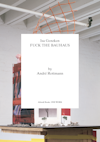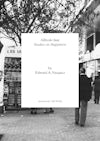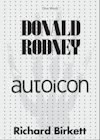Content
Chris Marker’s La Jetée (1962) is considered one of the greatest experimental films of all time. This short film, a compelling science-fiction story composed almost entirely of black-and-white photographs, has been praised by cultural theorists, artists and film-goers alike.
Janet Harbord focuses on the film’s influential circular treatment of time, the power of its voice-over narration and the qualities of stillness and movement in its images. She examines the pace and shifting rhythm of the various editing techniques employed in the work, the use of sound as a key affective device and the relationship of film to animation – in the sense of things brought to life. Harbord moves deftly from close readings of the film to discussions of broader cultural issues, navigating within La Jetee‘s prospect of a post-apocalyptic future, where humanity searches to save itself through experiments in time.




